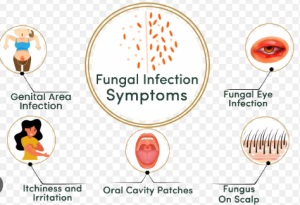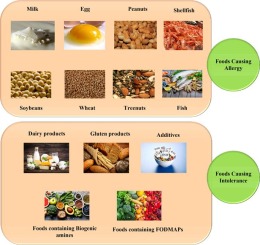Oh yes, we all know that poop doesn’t have any good smell as to not hold your breath when at it.
However, experts warn that when your poop smells exceptionally badly, you may need to talk to your doctor!
See some of the reasons why your poop may smell super nasty!
Antibiotics use

Your gut has what’s known as a bacterial flora, which is a collection of microorganisms that help break down your food. But, when you take antibiotics, it can tweak your bacterial flora ‘which leads to different byproduct,’ says Dr Aniqa Kohen, a gastroenterologist at Prisma Health. That change in bacteria can cause a change in smell, too.
Infection

An infection can also mess with the bacteria in your gut. ‘Different bacterial, viral, or parasitic infections can affect the digestive tract,’ Dr. Navabi says. While they might cause diarrhoea, they can also change the gas in your poop and create a smelly odour, he says.
Food intolerance or allergy

When you have a food intolerance or allergy, your body can’t properly process a particular ingredient, Dr. Singh says. The combination of gas produced by bacteria that try to break it down and undigested food can lead to a stinky smell. It can also cause you to have stomach cramps and sometimes bleeding.
Coeliac disease

Having coeliac disease means that your body has an immune reaction to eating gluten, a protein found in wheat, and attacks the lining of the small intestine, Dr. Navabi explains.
That damage to the lining of the gut can make it difficult to absorb nutrients and, as a result, you end up with symptoms like diarrhoea or constipation, bloating, gas, stomach pain, and greasy, smelly poop.
Inflammatory bowel disease

Inflammatory bowel disease (IBD) is an umbrella term used to describe several autoimmune conditions like Crohn’s disease and ulcerative colitis. Inflammation of the colon with ulcerative colitis can alter bacteria in the gut and cause bleeding—and both can lead to strong-smelling Number Two, Dr. Navabi says.
Crohn’s disease can cause similar issues, along with difficulty absorbing nutrients, and that can also lead to stinky poop, he says. IBD as a whole can cause uncomfortable symptoms like diarrhoea, stomach pain, nausea, and vomiting.
Your body isn’t absorbing your food properly
There are a lot of things that can lead to your body not absorbing nutrients properly (a.k.a. malabsorption), Dr. Kohen says—an infection, gluten allergy, gut inflammation, and several syndromes. ‘Any time chronic inflammation occurs in the gut, it can alter the balance of the bacteria,’ Dr. Navabi says. And that can add more gas to your poop. Cue the stink.
You have Clostridioides difficile

Clostridioides difficile (C. diff) is a contagious stool infection that leads to inflammation in the colon, says Dr. Jaswani. Most cases stem from taking antibiotics or occur not long after you’ve finished taking antibiotics, according to the CDC.
C. diff is spread through skin-to-skin contact, so washing your hands after you use the bathroom is an essential part of minimising your risk of spreading it. Along with smelly stool, other symptoms include watery stool, diarrhoea, abdominal cramps, and abnormal heartbeat, per the Wisconsin Department of Health Services.
Gastrointestinal bleeding

There’s a big difference between the blood you might smell in your stool versus digested blood because of the odour, according to Dr. Jaswani. If your poop is black, sticky, or tarry, it may be an indication that you’re bleeding in your GI tract.
But this isn’t the same as what you might see if you eat spinach or take medications such as bismuth or oral iron. ‘Blood from your upper GI tract mixes with digestive enzymes in your stomach and becomes altered by gut bacteria, creating the smell,’ says Dr. Jaswani.
Some types of cancer

This is a rare but important one to mention. ‘Changes in the microbiome of the colon in the presence of colon (or colorectal) cancer or advanced polyps can change the gas composition in our stool,’ explains Dr. Jaswani. The result? An abnormal stench from the toilet bowl.
This cancer is much more common after you turn 50, according to the American Cancer Society. And getting regular screenings starting at age 45 can help you spot polyps and have them removed before they turn into cancer. It tends to run in families, so chat with your doctor about your risk if your parents or siblings have it.
When should I see a doctor for super smelly poop?
Any time things seem off down there and they don’t go away after a few days or seem to be getting worse, it’s a good idea to call your doctor.
But you should call sooner rather than later if you have any of the following along with your persistently smelly poop, Dr. Kohen says. They are:
- Nausea
- Vomiting
- Weight loss
- Blood in your poop
- A family history of cancer or IBD
- Fever
- Chills
- Joint swelling
- Ulcers in your mouth
- Pain around your eyes
- Waking up at night to poop
You can’t get relief from over-the-counter medications
How can I avoid smelly poops?
If your smelly poop doesn’t seem to be linked to something serious, like GI bleeding, and you’re not having other severe symptoms, there are a few things you can do.
Take a closer look at your diet. If you’ve been eating a lot of garlic or onions lately, that could definitely be the culprit.
But sometimes, it can be a little harder to know what’s leading to that smell. ‘Often keeping a food diary might help you figure out what foods upset your gastrointestinal tract,’ Dr. Singh says, adding that you should keep an especially close eye on gluten and dairy.
Try eliminating some foods. You can try weeding out certain foods, like meat, eggs, broccoli, cauliflower, and asparagus, Dr. Kohen says. These are notorious for causing stinky poops.


